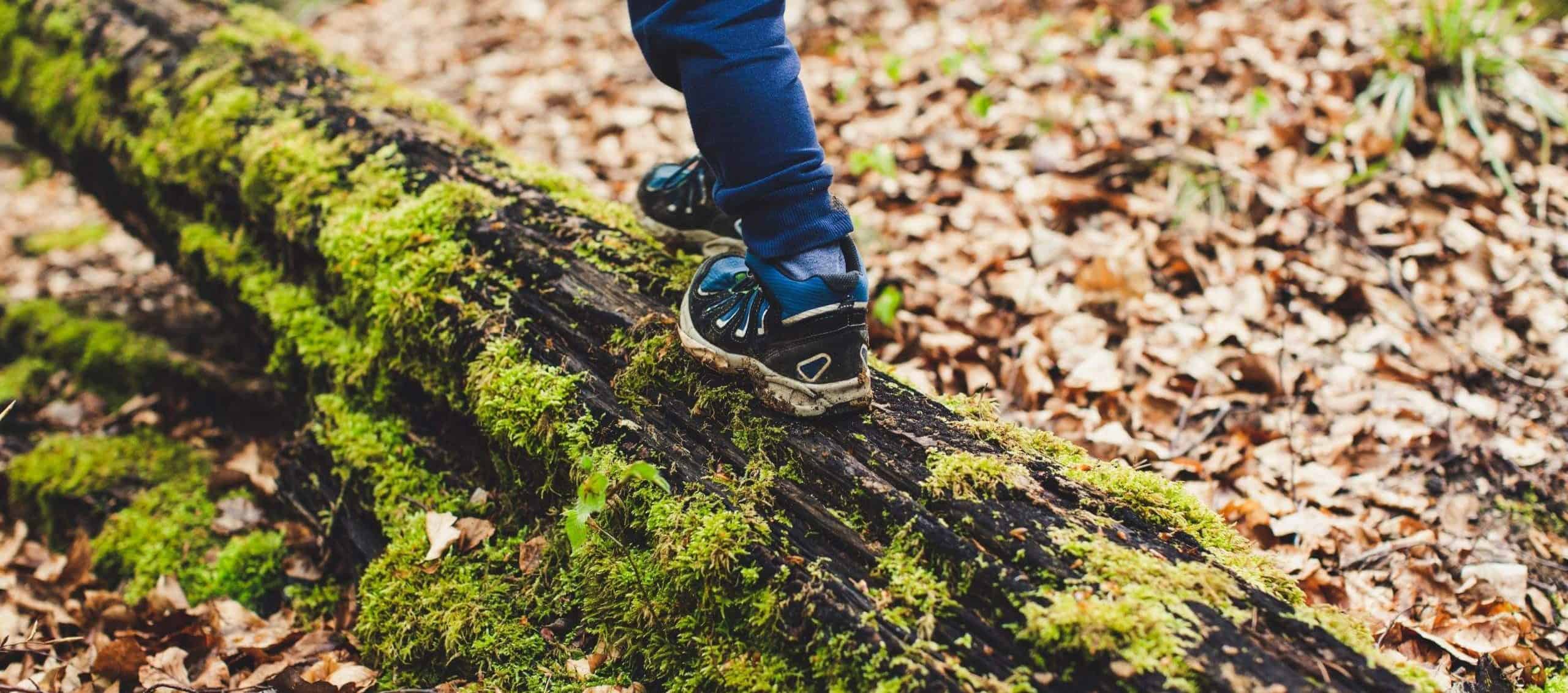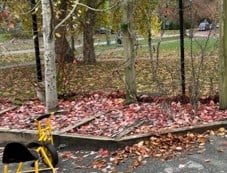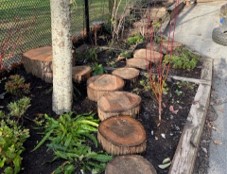
PROmoting Early Childhood Outside (PRO-ECO): A mixed-methods study to support outdoor play in early childhood education centres
Thank you to Rachel Ramsden, PhD student at the School of Population and Public Health, University of British Columbia, for providing this post.
Summer weather encourages many of us outdoors and, as we saw during the COVID pandemic, being outside brings us many benefits – to our health and wellbeing. The research in our lab focuses on creating environments that support children being able to get outside and play every day. Over the past year, we’ve been working with early childhood education centres (ECECs) to increase outdoor play opportunities through the PROmoting Early Childhood Outside (PRO-ECO) study. As outlined in the recently published study protocol, the PRO-ECO study is partnering with the YMCA of Greater Vancouver to develop, implement and evaluate an innovative outdoor play intervention across 8 ECECs in British Columbia.
Early childhood education centres and outdoor play
ECECs can provide children with rich opportunities for outdoor play and is particularly important for children who may not have these opportunities at home or in their community1. But many ECECs struggle to provide high quality and stimulating outdoor play opportunities for children. They may be worried about the weather, have restrictive policies and regulations, feel afraid or uncertain, or have small or poorly designed outdoor spaces2-4.
Study design
Through the PRO-ECO study, we aim to support children’s outdoor play at ECECs through four components:
- Modifying the outdoor play spaces to increase the prevalence of nature, natural loose parts and diverse structures and surfaces;
- Early childhood educator training on outdoor play and loose parts – provided by the YMCA of Southwestern Ontario;
- Parent and caregiver engagement; and,
- Updating ECEC policies and procedures related to outdoor play.
We are using a randomized trial design, collecting qualitative and quantitative measures, to understand how the PRO-ECO project supports children’s participation in outdoor play when at ECECs. In addition, we want to understand how the staff, administrators and parents perceive this intervention, and determine the costs and benefits associated with it, to determine if it can be replicated across other ECECs.
Innovation across sectors
In November 2021, the first four ECECs implemented the four components of the PRO-ECO project. To modify the outdoor environment, we partnered with the UBC School of Architecture and Landscape Architecture (SALA) and the BC Cancer Agency. These four ECEC sites were transformed to include more plants, shade, opportunities to connect with nature, and elements to encourage gross-motor (e.g., running, skipping, climbing) and risk-taking activities (e.g., play at heights, rough and tumble play).
The feedback from children and early childhood educators has been overwhelmingly enthusiastic, with children now having more choice in their outdoor play activities and increased natural elements to interact with.
The next four ECECs just implemented the PRO-ECO project and we are excited to continue to measure the effect of this program until the end of 2022.
To measure children’s outdoor play movement and behaviours at ECECs we are using an innovative tool, the Tool for Observing Play Outdoors (TOPO)5. Early childhood educators were also regularly engaged to provide feedback on the outdoor play intervention and insight through focus groups. These approaches were possible due to the partnerships created with the YMCA, early childhood educators, child care licensing officers; and multidisciplinary experts in early childhood education, landscape architecture, public health, outdoor play, and child development.


An example of an outdoor play space at one of the participating YMCA Child Care Centres that was transformed (left: before transformation, right: after transformation).
Outcomes
Through the PRO-ECO outdoor play project we can address many aspects of the ECEC environment, including early childhood educator’s individual knowledge, attitudes, and practices; parents’ knowledge and attitudes toward outdoor play; the quality of the outdoor play space; and the policies governing the facility. Each ECEC partners with us to design a project that is adapted to their needs, thus the project includes aspects that can be universally applied, but also has the flexibility to tailor to the specific needs and context of each ECEC.
Increasing and enhancing outdoor play opportunities at ECECs is challenging, but through this project we hope to address these challenges and make it easier for ECECs to make outdoor play an easy choice. The results and lessons learned through this study will inform the feasibility of a future larger-scale randomized trial seeking to understand the influence of this outdoor play intervention. The federal government recently announced a $1.3 million grant to expand the PRO-ECO project. This second phase of the PRO-ECO project will involve a partnership with First Nations and Métis child care organizations in BC.
Funding for the PRO-ECO study was received through the Lawson Foundation’s Outdoor Play Strategy 2.0 funding pool. We are grateful to all of the PRO-ECO study partners including the YMCA of Greater Vancouver, the YMCA of South Western Ontario, BC Cancer, Professor Susan Herrington and the School of Architecture and Landscape Architecture students, and Métis herbalist Lori Snyder. Learn more about this project here and other projects from the Brussoni lab here.
The full PRO-ECO study protocol, “An intervention to increase outdoor play in early childhood education centres (PROmoting Early Childhood Outside): protocol for a pilot wait-list control cluster randomized trial” was recently published in the Journal of Medical Internet Research (JMIR) Research Protocols and can be read here: https://www.researchprotocols.org/2022/7/e38365
Rachel Ramsden is a PhD student in the School of Population and Public Health at the University of British Columbia. She is a public health researcher and her research interests include children’s outdoor play and child-friendly urban planning and design.
References
- Copeland KA, Khoury JC, Kalkwarf HJ. Child care center characteristics associated with preschoolers’ physical activity. Am J Prev Med 2016 Apr;50(4):470-479 [FREE Full text] [CrossRef] [Medline]
- Dietze B, Kashin D. Perceptions that early learning teachers have about outdoor play and nature. Learn Landscape 2019 May 31;12(1):91-105. [CrossRef]
- Wagner SL, Forer B, Cepeda IL, Goelman H, Maggi S, D’Angiulli A, et al. Perceived stress and Canadian early childcare educators. Child Youth Care Forum 2012 Sep 25;42(1):53-70. [CrossRef]
- Sandseter EB, Cordovil R, Hagen TL, Lopes F. Barriers for outdoor play in early childhood education and care (ECEC) institutions: perception of risk in children’s play among European parents and ECEC practitioners. Child Care Pract 2019 Nov 22;26(2):111-129. [CrossRef]
- Loebach J, Cox A. Tool for observing play outdoors (TOPO): a new typology for capturing children’s play behaviors in outdoor environments. Int J Environ Res Public Health 2020 Aug 04;17(15):5611 [FREE Full text] [CrossRef] [Medline]

